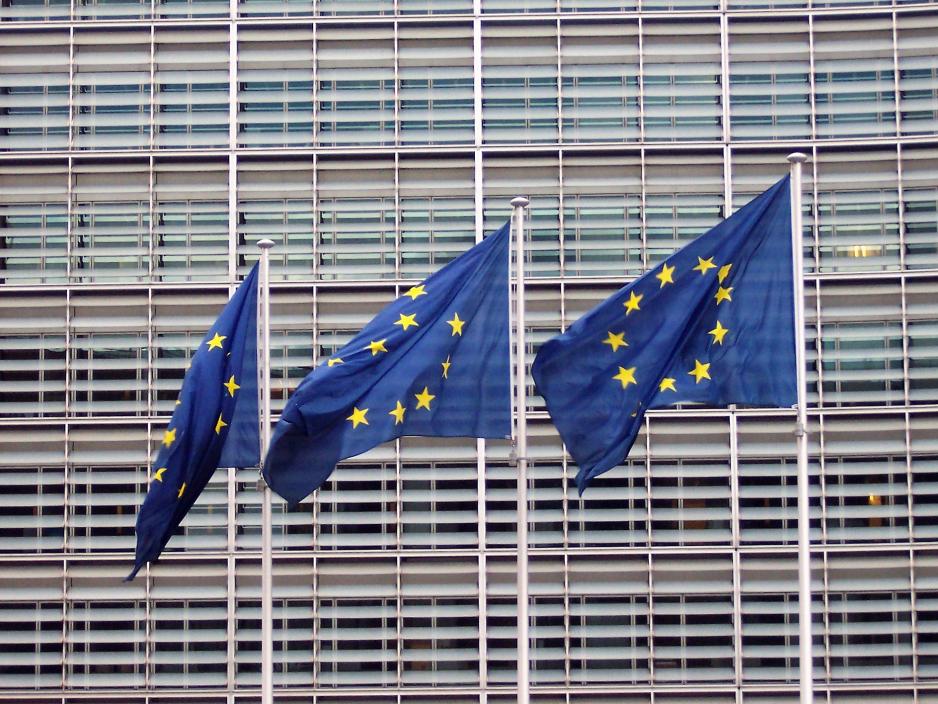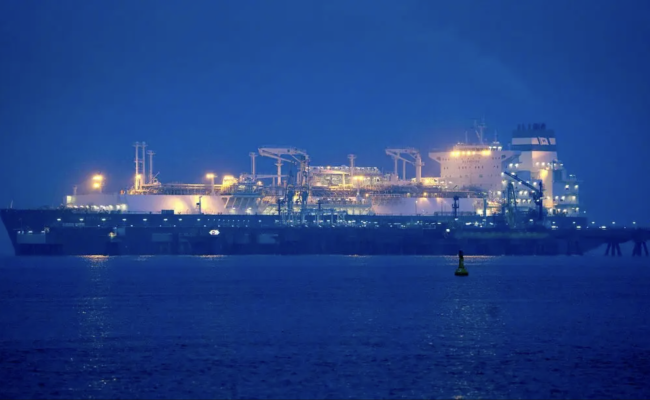Ten EU Member States Urge Ban on Russian Liquefied Natural Gas Ramping Up Pressure on Yamal LNG

Flags in front of the European Commission building in Brussels. (Source: TeaMeister under CC BY-NC 2.0 DEED)
A coalition of ten EU member states is urging Brussels to take steps to ban or at a minimum begin phasing out Russian liquefied natural gas imports. Pressure on Russian oil and gas is at an all time high following U.S. sanctions against dozens of Arctic tankers and two LNG plants.
As work on the EU’s 16th sanctions package against Russia continues imports from the country’s Arctic Yamal LNG project return to the focal point.
A group of 10 EU member states is calling for the phasing-out of Russian gas supplies.
The bloc includes Scandinavian members, Denmark, Finland, and Sweden, the Baltics states, Latvia, Lithuania, and Estonia, Eastern European members Poland, the Czech Republic, and Romania, as well as Ireland.
A necessary ban
None of the states are currently importing Russian gas in the form of natural liquefied gas (LNG).
Individual members, such as Sweden, had previously urged the EU to take measures against LNG. But this week’s joint paper, as first reported by Bloomberg, represents a unified front.
At a minimum a phased reduction
"As an end goal, it is necessary to ban the import of Russian gas and LNG at the earliest date possible,” the document reads.
Gas still flows
If an immediate ban is not feasible the group suggests at a minimum a phased reduction.
"An alternative to the full ban could be to gradually reduce the use of Russian gas and LNG as has also already been set out in the RePowerEU Roadmap.”
The majority of Russian LNG, imported at record levels in 2024, continues to flow to France, Belgium and Spain. Officials and industry representatives repeatedly cited supply security as a reason why Russian imports had to continue.
But those explanations increasingly ring hollow as EU imports have declined by 20 percent in 2024 and the general easing of the global supply situation.
Also read (The text continues)
US targets existing LNG plants
Last week the U.S. also leapfrogged EU efforts by sanctioning two existing Russian LNG projects, Portovaya and Vysotsk LNG, both located in the Baltic Sea.
Until now U.S. sanctions had strictly targeted future Russian production capacity in the form of Arctic LNG 2 in an effort to not affect supplies into the EU. With the sanctioning of Portovaya and Vysotsk LNG existing capacity has for the first time been blocked.
Just four weeks ago Italy had received a load of LNG from Portovaya for the first time.
Adds pressure
The EU’s upcoming transshipment ban for Russian LNG will add further pressure on the country’s Arctic Yamal LNG project.
Last week Belgium’s government approved a draft text to ban the transshipment of Russian LNG. The regulation is designed to put Belgium into compliance with the EU ban. Belgium’s Zeebrugge terminal is the largest re-exporter for Yamal LNG.
In 2019 terminal operator Fluxys signed a 20-year agreement with Yamal LNG for the transshipment of LNG valued at around 50 million Euro annually.
Russia’s fleet of ice-capable LNG carriers is also coming under increasing pressure with renewed attention on two Europe shipyards – Damen in France and Fayard in Denmark – which provide key maintenance and repair services. A spokesperson for Damen confirmed that the yard did not have any plans to repair additional LNG carriers “in the upcoming period.”
Without the EU-based shipyards the Russian fleet would likely be sidelined within a year or two.




